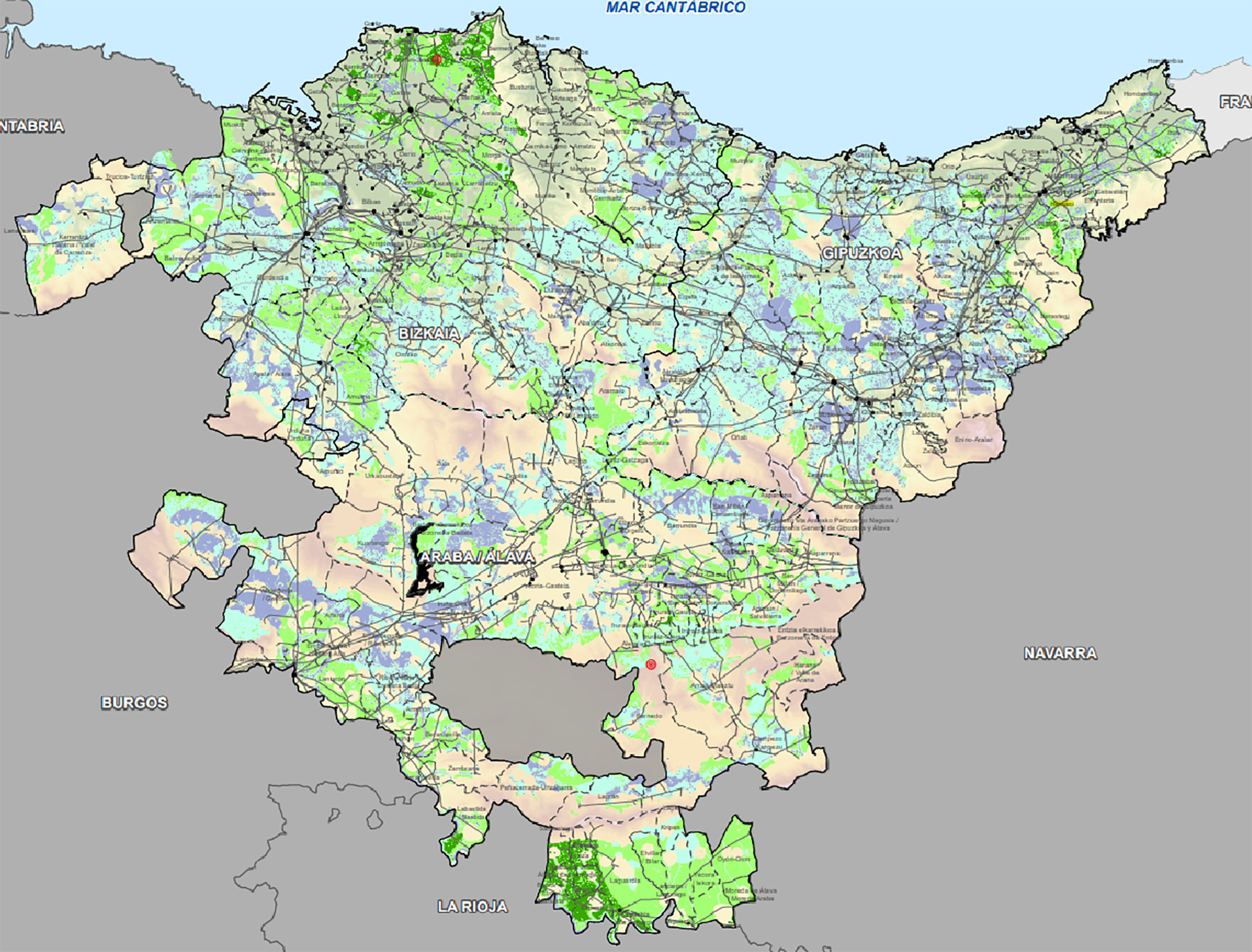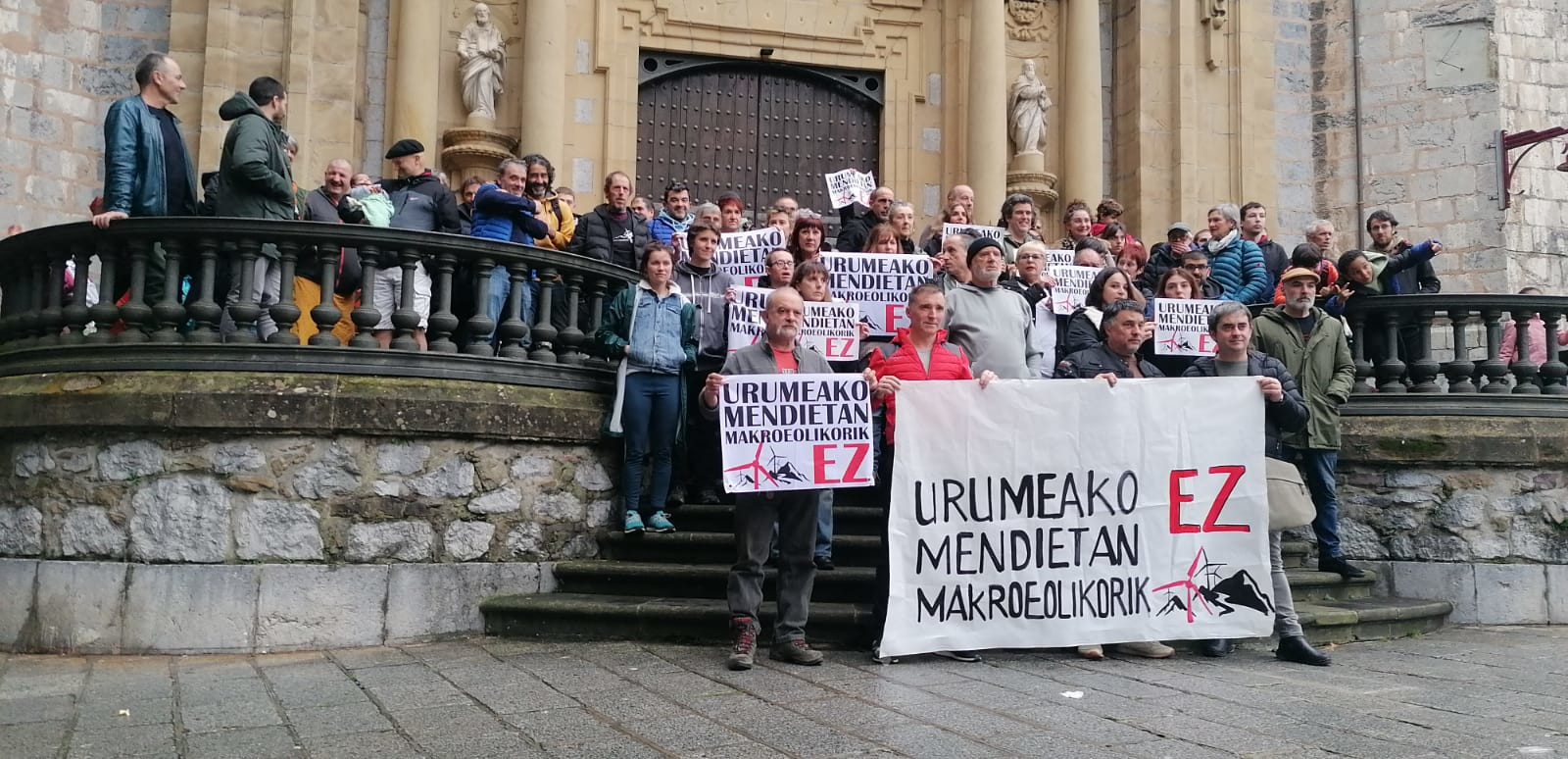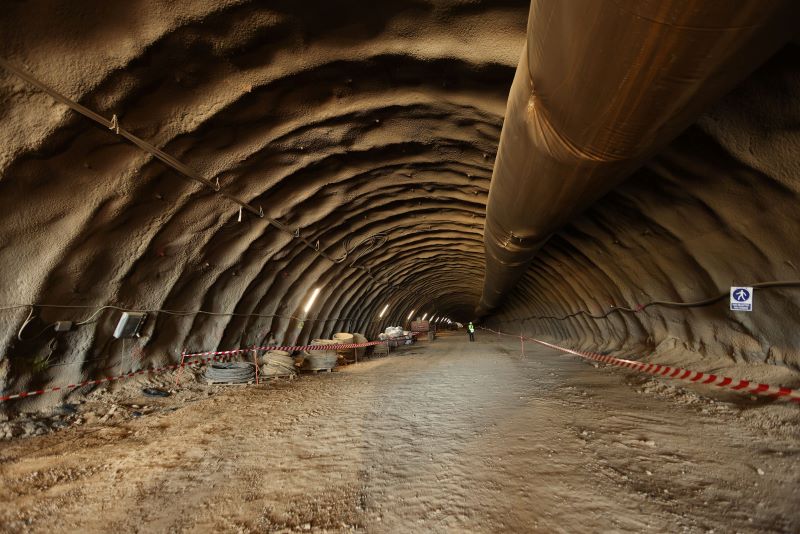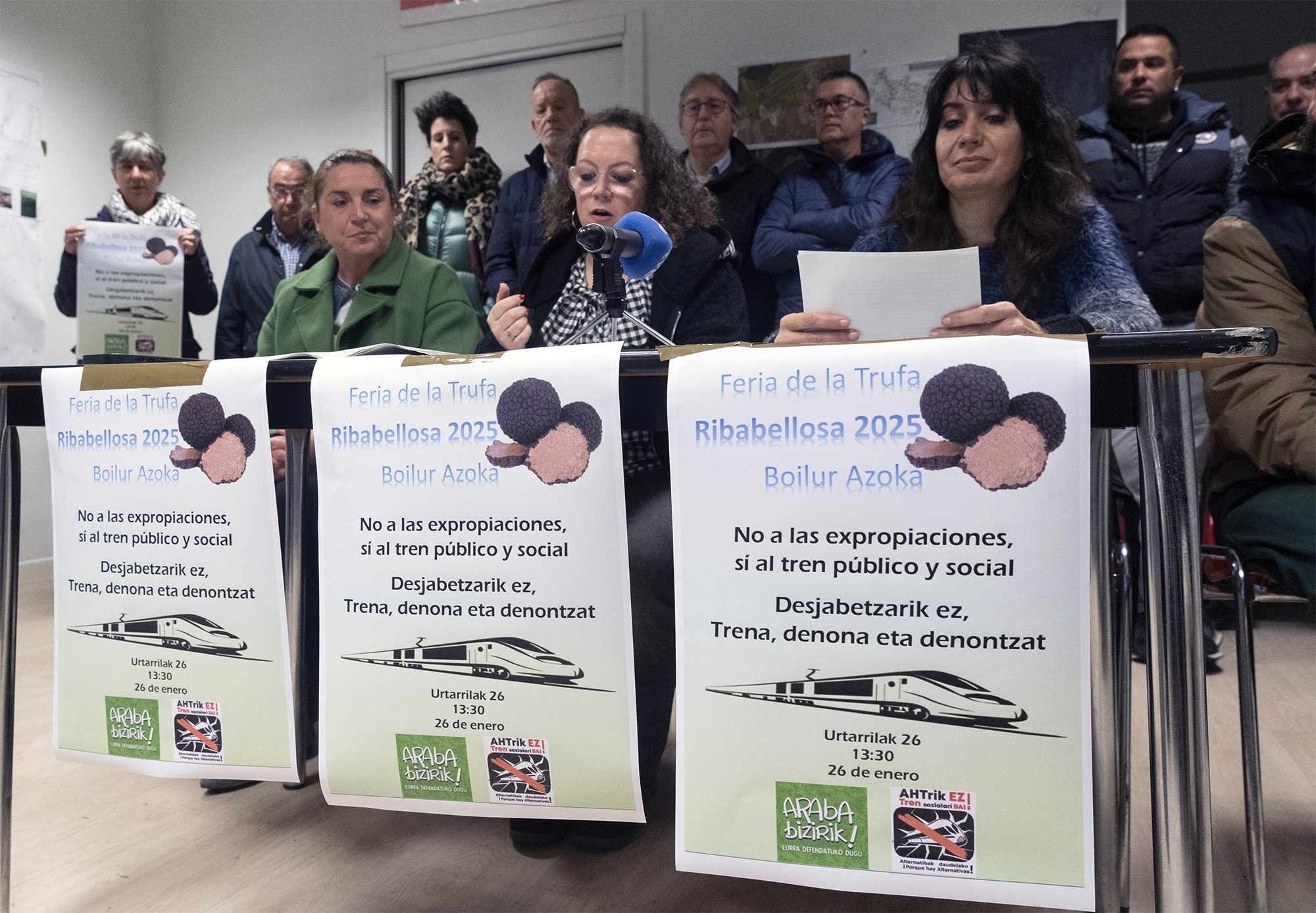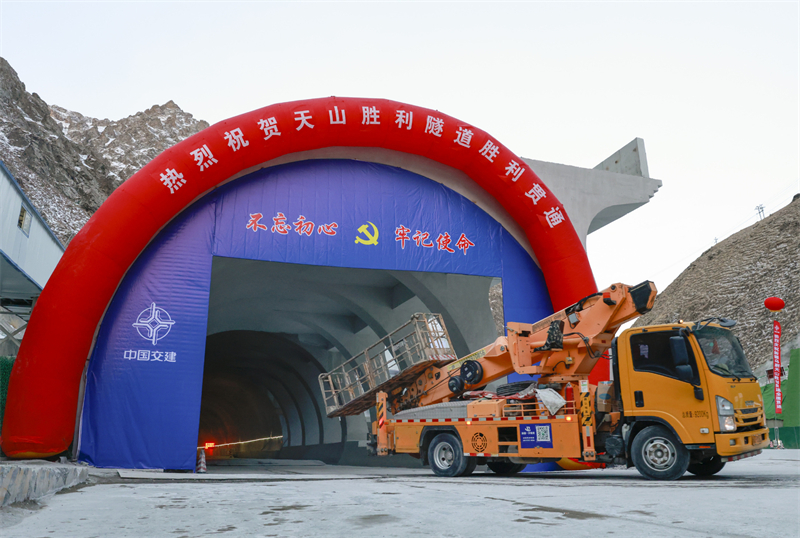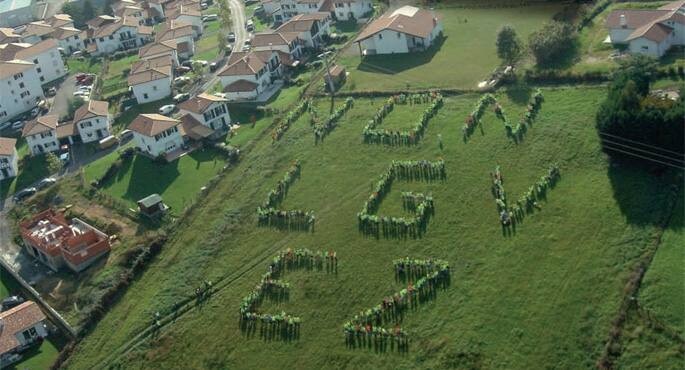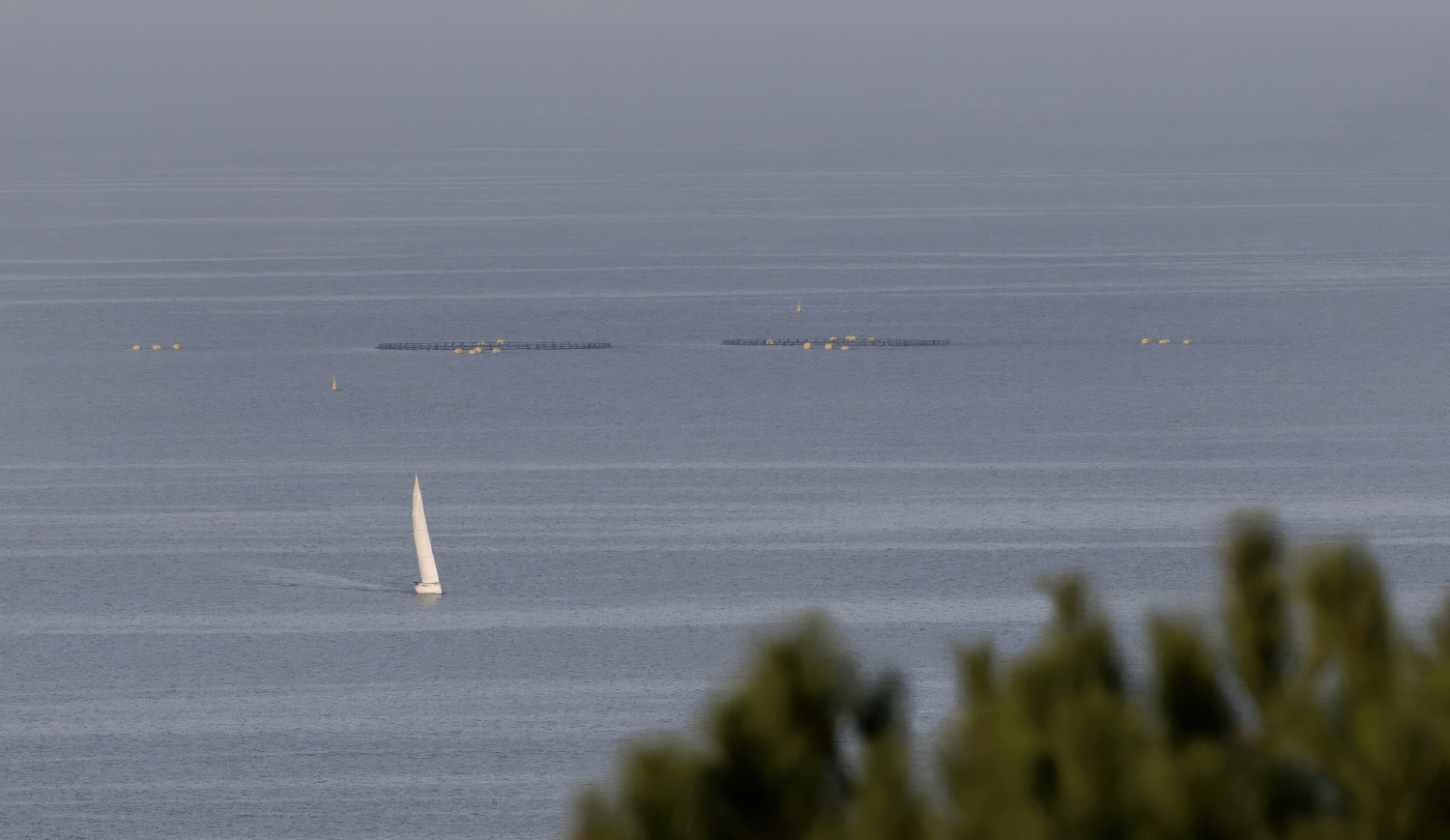"They want to do business on the excuse of energy transition and climate change"
- Projects are planned for the construction of major industrial infrastructures in the mountains and rural areas of Álava. With the approval of the Basque Government and the Provincial Council of Álava, the plans for the construction of wind, photovoltaic power plants, giant greenhouses and TAV lines continue. In order to denounce the "irreversible" impact of these projects on the environment and therefore to demand their cessation, many citizens have joined the Araba Bizirik group. On Saturday, 23 October, a demonstration will be held in the capital of Alavesa. Gasteiztarra Iñigo Leza, a member of platforms No to TAV Araba and Araba Bizirik, has warned of the damage that macro-projects will suffer.

A few months ago you gathered on the Araba Bizirik platform different local initiatives: Araba, Mendia Aske (against wind power plants), No to this Project (against PV plants) and For a Sustainable Food (against industrial agriculture). Why?
Seeing that many of these projects are advanced all over Álava, we decided that instead of organizing things separately, collaboration would give us more fruits. We saw that together we could organize stronger things, and that the joint demonstration would also be greater.
One of your demands is the suspension of some renewable energy projects. On the other hand, however, the Basque Government believes that an energy transition is increasingly needed to cope with the current energy crisis and the climate emergency. Is the solution to build wind and photovoltaic power plants?
First of all, we need to see why we want that energy. You have just published in ARGIA a story about bitcoin, which explains how this digital currency spends more electricity than many countries. In this model, you can fill all the mountains with wind or photovoltaic power plants, but you will always need more energy. So, first you have to question the system itself, and then from there, we can think about how we get electricity and other forms of energy. Through what kind of companies do we get them? Behind these projects are multinationals like Iberdrola, and these kinds of multinationals don't care about getting right or running out of electricity. They're just looking at economic performance. In the Autonomous Community of the Basque Country, for example, there is the Basque Energy Agency (EVE), a public body, which should be able to carry out projects on its own.
They want to do business on the pretext of energy transition and climate change. For example, a 55 hectare photovoltaic plant has now been installed in the south of Álava. On the side there is a large industrial estate, where you can put the PV plates or in the upper areas of the pavilions. On the contrary, the plates have been placed on agricultural soil, although they have not been removed. Who? Multinationals.
.jpg)
In recent days, the Basque Government has rejected the projects of the wind power plants of Arkamu and Iturrieta. A report by the Environment Department explains that the environmental impact would be irreversible. However, the projects of Labraza and Azazeta continue.
We think they're doing a little theater. Thirteen years ago, numerous projects were also presented for the mountains of Álava, Gipuzkoa and Bizkaia. Now, however, all the projects are being planned in Álava and, at first, they started with four: Arkamu, Iturrieta, Labraza and Azazeta. But they soon started talking about other projects. You're looking at Cantoblanco, you want to put two others on LEGUTIO and Aramaio, also on Yours… Also, on the same day you announced that you're not going to put them on Iturrieta and Arkamo, Iberdrola's said they intended to double Azazeta's. There are 11 projects planned for Álava. We think it is right to put them back, because it has been seen that the pressure of the people has influenced them, but we call for this type of power plant to be installed in areas that have already been manned, not in natural spaces.
“Wind and photovoltaic power plants should be located in anthropized areas, not in natural areas”
They have repeatedly called on the institutions to paralyse these macro-projects. What is your attitude?
They've had a pretty bad attitude. They don't listen very much to us and they say we're four cats who complain. In addition, they laugh at us in the media. Then, when they saw that quite a few people had left the Arkamu and Iturrieta power stations. It seems to us that they will reassure people and that at the demonstration on Saturday people will go less.
From the Araba Bizirik platform we ask you to develop a Sectoral Territorial Plan for Renewable Energy. What does it consist of?
It is a regulation of the Basque Government derived from the Regional Planning Guidelines. In this case, the development of renewable energy plans requires the existence of a Sectoral Territorial Plan. But they haven't developed it either, but wind and photovoltaic projects like mushrooms are already being presented, with no plans. In fact, the plan is part of the Government ' s legislation and serves to measure the environmental impact of power plants throughout the territory. In other words, not only are the impact of each plant taken into account in that location and in isolation, but all the projects are taken into account, as the impacts are multiplied.
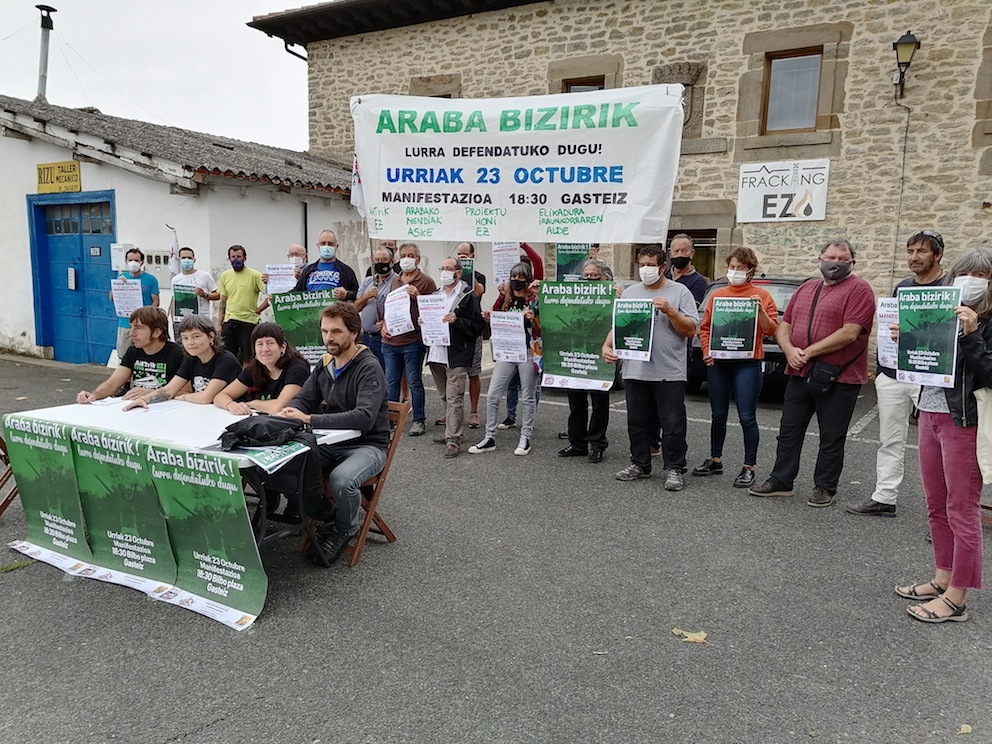
Instead of all these projects, what alternatives do you propose?
From the outset we have put the options on the table. With regard to the TAV, on Monday we were present at the General Meetings of the Council of Álava and presented a few months ago the agreement reached with the trade unions of Renfe and ADIF. This agreement highlights the possibility of reforming and adapting the current railway lines of the Milan-Vitoria, Vitoria-Gasteiz, Pamplona and Asturias-Zaragoza routes for the passage of all the trains. For example, the train would take about 50 minutes to get to Pamplona from Vitoria-Gasteiz, and they say that with the TAV it would take 45 minutes. There's only five minutes apart, and it costs a lot more to build the TAV line.
As for other wind and photovoltaic projects, there are many pavilions and polygons for the placement of photovoltaic plates, and it must be taken advantage of, they should not be placed in grasslands and rural areas. We must also put wind power stations in anthropometric places and not in our public mountains. Human beings have filled all the spaces, and mountains are the only natural public areas left to us, and with the macro-projects that are planned we would also frustrate them. We have to protect those mountains, leave them as they are.
“Our bet is organic, indigenous, small and diversified agriculture”
The same is true of the agricultural sector. It is not appropriate to carry out so many greenhouses in so many hectares. There is a project for the construction of greenhouses of 60 hectares in Álava. To do this, they first remove the earth, then they cast the cement and build the greenhouse on it. They use the so-called hydroponic culture, which requires a lot of water, as well as many fertilizers and pesticides. In addition, these kinds of greenhouses need a lot of energy: Thermometers will remain at 27 degrees Celsius, while in Álava the average temperature in winter is around ten degrees. Our commitment is to organic, indigenous, small and diversified agriculture.
In addition to reinforcing the convening of the demonstration on Saturday, they have organized several conferences to invite citizens to reflect on the alternatives of macro-projects. The Saturday will end the cycle of talks, what assessment have you made so far, what conclusions have you drawn from the talks?
The assessment is very positive, as a lot of people have approached it. For example, at the conference offered by Carlos Taibo in Vitoria-Gasteiz there were at least 100 people, we have seen that there is a lot of interest in the subject. I believe that people have realised that the current political situation is rather confusing: the price of gas is rising a lot, there is less oil... and they want to know what alternatives there are. Many rapporteurs told us that we are on the verge of a major crisis and that in order to avoid it we cannot spoil the natural spaces, because we would increase the crisis. Such major plants have a great environmental impact and there is not enough energy or material needed for their construction and maintenance. The crisis would therefore accelerate. In the conversations, we've seen that it's better to try to build more resilient societies and not go down the path that capitalism takes us.
.jpg)
Zirkulazioan lehentasunek garrantzi handia dute. Gidatzeko ikasten dugun lehen gauzatakoak dira: biribilguneak eta STOPak menperatu ezean nekez lortuko dugu gidabaimena.
Hala ere, lehentasunak ez dira kontu neutroak, eta historiak eta interes kontrajarriek aldatu izan... [+]
In recent weeks we have been reading "proposals" for the recovery of the railway line Castec-Soria and the maintenance of the Tudela train station in its current location, or for the construction of a new high-speed station outside the urban area with the excuse of the supposed... [+]








